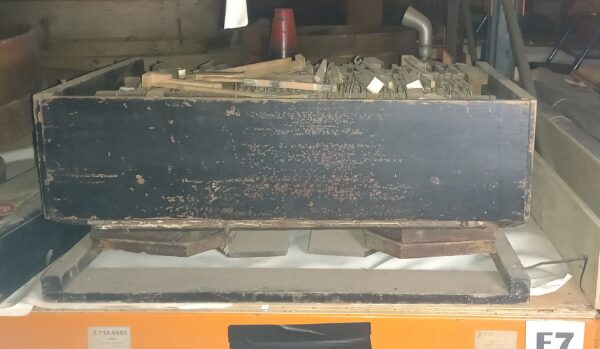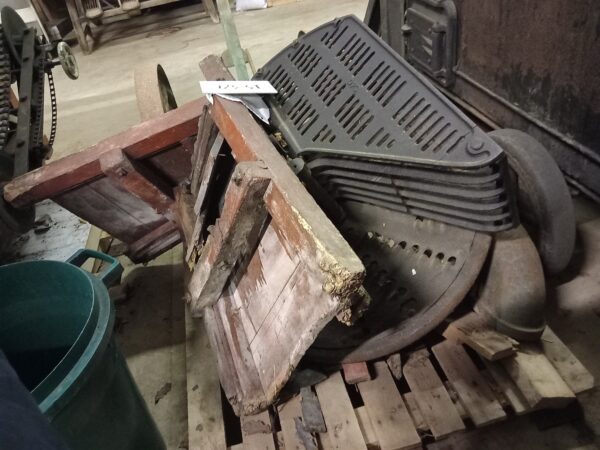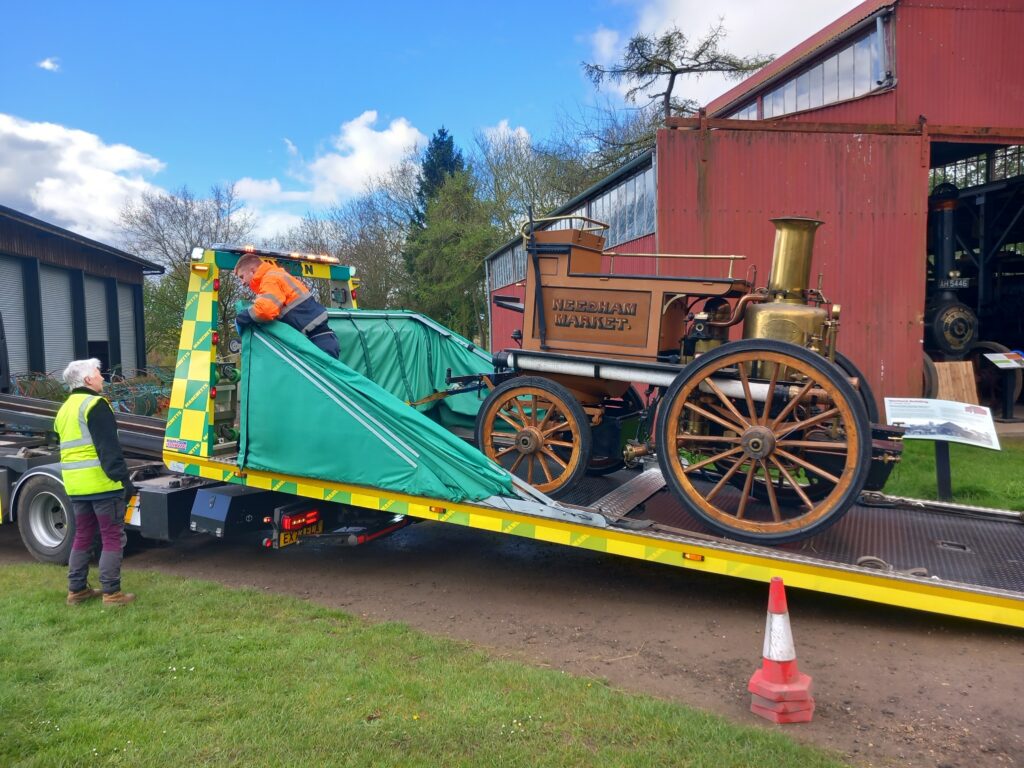Behind the Scenes at the Museum: Collections Audit
Since 2017, we have been undertaking a major project to digitise and audit our collection of over 40,000 objects, assembled over the last 60 years. More information here.
We have been working with a team of volunteers to carry out the audit, working out what might not be sustainable or sensible for us to keep as we balance the needs of our existing objects and future collecting against the resources that we have, such as staffing and space.
Earlier this year we returned some items that had been on long-term loan to the museum. A hearse and bier to the village of Laxfield, a cinema projector to the East Anglian Film Archive and a Shand Mason fire pump (previously on loan to us from Colchester and Ipswich Museum Service) is now on display at the Ipswich Transport Museum. These items were all previously in the Robert Boby Building which we plan to redisplay as part of our National Lottery Heritage Funded Kitchens Project but, in the meantime, we’re using as temporary storage while we carry out roofing works to our Collections Storage Building.
Following best practice guidance from the Museums Association we have transferred some of our long-term stored objects to other museums who are keen to display them. This includes a tar boiler to Bressingham Steam Museum, a sign for Robert Lofts and Son (plumbers from Bury St Edmunds) to Moyses Hall Museum and a teacher’s desk which has pride of place as the millers desk at Woodbridge Tide Mill Museum. A selection of other items have been identified and offered to museums across the country but not found new homes. Best practice guidance recommends that these be offered for sale by auction to ensure openness and transparency – the museum will follow this process with any income generated being invested in the future care of, access to and engagement with the collection.
Sadly we also identified some objects that were in poor condition when they came in to the museum – such as this harmonium (image below) – or have deteriorated due to woodworm such as this root chopper (image below). Today we would not accept an object in such poor condition, and we hold other examples of root choppers in better condition, so these items have been removed from the collection.
Decisions like these are not taken lightly. We consult with others in our team, the wider museum world and members of our community through Collections Audit workshops before decisions are presented to our trustee board for authorisation. If you’re interested in getting involved, please drop us a line as we’d love to hear from you at collection@foodmuseum.org.uk


Share this article



